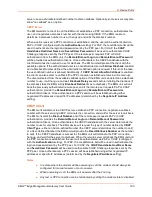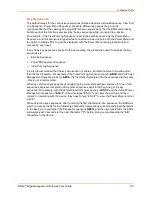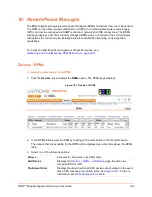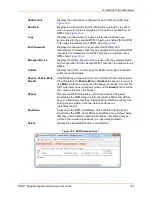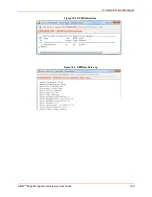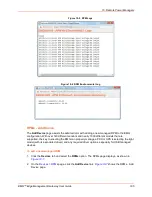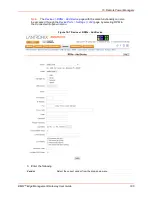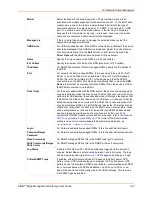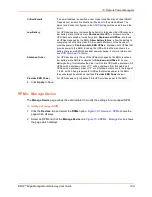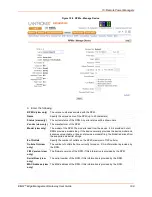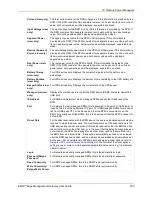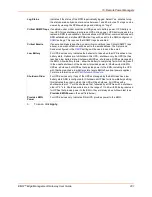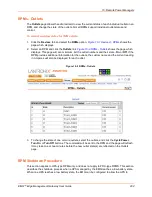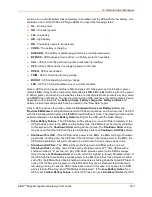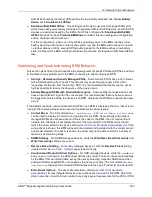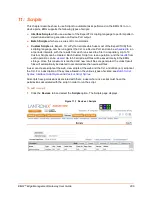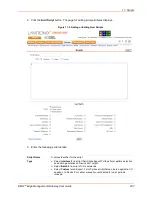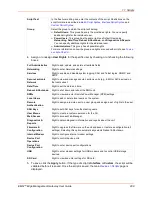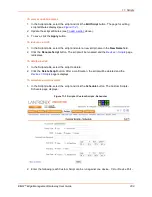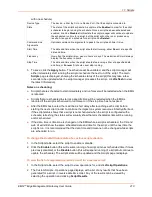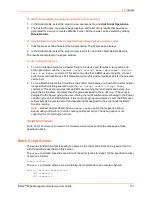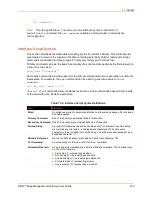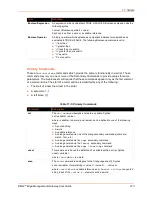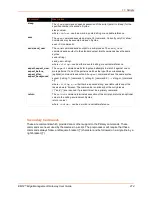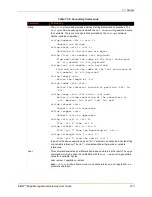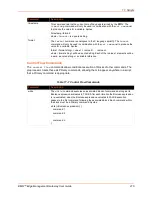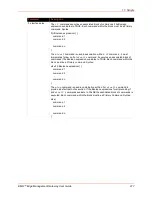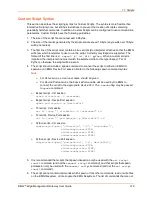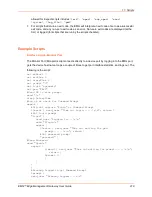
10: Remote Power Managers
EMG™ Edge Management Gateway User Guide
204
will still be shutdown if another UPS reaches the low battery state and has its
Low Battery
Action
set to
Shutdown all UPSes
.
Shutdown Both EMG UPSes
- This setting should only be used on dual-power EMG units
which have each power supply connected to separate (different) UPS devices, and both UPS
devices are being managed by the EMG. If a UPS is configured for
Shutdown Both EMG
UPSes
but does not have
Provides EMG Power
enabled, this is an ambiguous configuration,
and no shutdown action will occur.
For this configuration, when one of the UPSes providing power to the EMG reaches a low
battery state, the event will be noted in the system log, and the EMG will continue to run with
no further actions until the second UPS providing power to the EMG reaches a low battery
state. At this point the EMG will begin shutdown procedures, shutting down both failed UPSes
last.
Optimizing and Troubleshooting RPM Behavior
This section gives tips on how to optimize the management of specific PDUs and UPSes, and how
to troubleshoot any problems with the EMG connecting to and managing an RPM.
Sentry3 - Network and Serially Managed PDUs
- Some Sentry3 PDUs have a CLI timeout,
with a default setting of 5 minutes. This timeout may cause frequent query errors when
requesting information from the Sentry3 PDU. It is recommended that the timeout be set as
high as possible to reduce the frequency of the query errors.
Serially Managed RPMs with Administrator Logins
- Some serially managed devices will
have an administrator login for the console port. It is recommended that any active sessions
be logged out before adding the device as an RPM, otherwise the RPM may experience query
errors.
If the EMG is unable to communicate with an RPM, or an RPM is displaying the error "driver is not
running", the following steps can be used to troubleshoot the driver issues:
Correct Driver
- The CLI command
set rpm driver <RPM Id or Name> action show
can be used to display the current running driver for the RPM. Some serially and network
managed RPMs do not have drivers; if this is the case for the RPM, the CLI command will
indicate this. Otherwise it will display the driver that is running for the RPM, and it should
match the driver listed for the device at
Network UPS Tools Hardware Compatibility List
. If the
wrong driver is shown, the RPM will need to be deleted and re-added, with the correct vendor
and model selected. If no driver is shown, the driver may not be able to start for a variety of
reasons; see remaining steps.
SNMP Settings
- For SNMP managed devices, verify the
IP Address
,
Read Community
and
Write Community
settings are correct.
Reverse Pinout Setting
- For serially managed devices, verify the
Reverse Pinout
setting
VendorId and ProductId Driver Options
- For USB managed devices, verify the
vendorid
and
productid
shown in the RPM driver options are correct. These can be set automatically
by the EMG from an internal table, set by the user by selecting a specific USB device when
adding a USB-managed RPM, or changed by the user at any time. The CLI command
show
usb devices
displays all connected USB devices with their port, Product ID and Vendor ID.
Extra Driver Options
- The driver documentation at
Network UPS Tools Hardware
Compatibility List
may indicate that extra driver options are required for the RPM. Select the
driver name link under the Driver column to see any special requirements for the UPS or PDU.
Содержание EMG 8500
Страница 1: ...Part Number PMD 00008 Revision A October 2019 EMG Edge Management Gateway User Guide EMG 8500 ...
Страница 69: ...6 Networking EMG Edge Management Gateway User Guide 69 Figure 6 2 Network Network Settings 2 of 2 ...
Страница 302: ...14 Maintenance EMG Edge Management Gateway User Guide 302 Figure 14 12 About EMG ...

